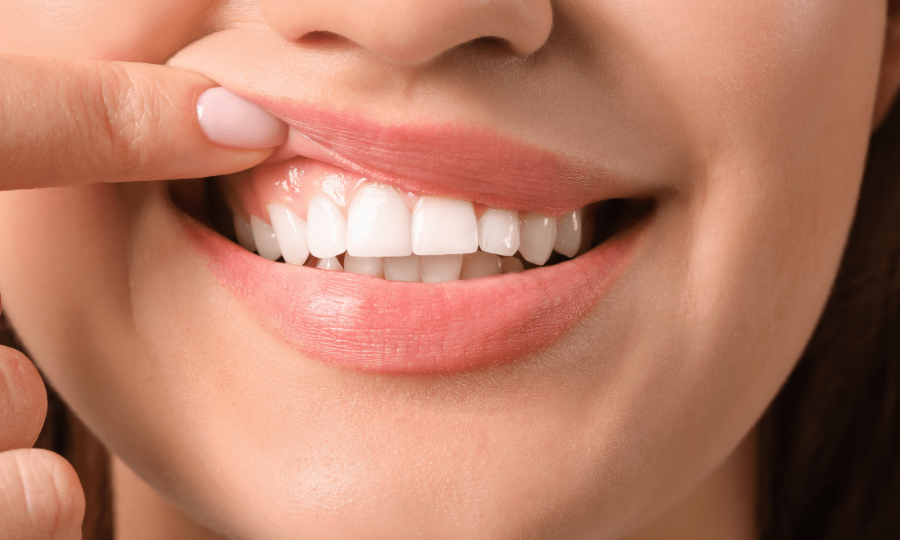What Strengthens Tooth Enamel?
Before we delve into ways to strengthen tooth enamel, we need to understand what tooth enamel is and why it’s important. But first, what leads to a healthy, beautiful smile?
Maintaining healthy teeth and a beautiful smile involves regular dental checkups and good oral hygiene to avoid damage or erosion to the enamel. That is why they say prevention is better than cure. However, with severe enamel erosion, your dentist can add a crown or veneer, similar to tooth enamel, to prevent further decay.
Overview of Tooth Enamel
Enamel is a thin layer that covers the outside of the tooth. It’s the hardest tissue in the human body, tougher than bone, and is translucent.
The composition of tooth enamel is mainly calcium and phosphate. These minerals give teeth their hardness and make them strong enough to resist daily use and wear and tear. Enamel also helps prevent tooth decay and cavities and protects your teeth from temperatures that could cause pain and sensitivity.
As we age and with time, the enamel can start to lose the minerals leading to enamel erosion. Once enamel is gone, it can’t be repaired or replaced.
Causes & Symptoms of Enamel Erosion
Enamel is the first line of defence against harsh chemicals and acids. If you don’t look after your teeth, brush too vigorously, bite hard objects, or drink or eat certain foods, they can lead to erosion. Some of the causes include:
- Sugary foods
- Starchy foods
- Acidic foods
- Sour foods
- Fruit drinks and juices
- Soft drinks
- Excess vitamin C
- Teeth grinding
- Chronic acid reflux or heartburn
- Low salivary flow or dry mouth
- Certain medications such as antihistamines or aspirin
- Eating disorders
- Genetics
Symptoms of enamel erosion can vary depending on the severity. These can include:
- Sensitivity to certain foods and temperatures (hot or cold).
- Cracks and chips where edges become rough, jagged, or irregular.
- Discoloration, which appears yellow when the dentin is exposed.
- Tooth cupping or indentations on the surface of the teeth.
 Ways to Strengthen Tooth Enamel
Ways to Strengthen Tooth Enamel
You can’t replace lost enamel, but you can prevent further erosion. Strengthening the enamel involves replenishing the minerals, known as remineralization, by adopting good oral hygiene habits and lifestyle choices.
Brush Your Teeth But Avoid Overbrushing
Brush regularly to remove the bacteria that cause cavities. If you use a soft brush and avoid brushing too hard or fast, you can prevent wearing down your enamel.
Also, wait an hour after eating acidic foods to brush your teeth. Acidic foods and drinks soften the enamel and brushing soon after can lead to damage.
Use Flouride
Fluoride makes the teeth more resistant to acid attacks from plaque and sugars in the mouth. It also helps prevent tooth decay and can reverse early decay.
Fluoride toothpaste, mouth rinses, and fluoride applied to the teeth at your dentist’s office make your teeth less susceptible to mineral loss.
Get More Calcium & Vitamins
Incorporating a diet rich in vitamins and minerals helps strengthen the enamel. Foods high in calcium include milk, cheese, dairy products, beans, and almonds.
Vitamin D helps to absorb and deposit calcium in the bones and teeth. You can get vitamin D from fortified foods and the sun.
Limit Certain Foods & Drinks
Sugary and starchy foods and drinks feed cavity-causing bacteria in the mouth. Limiting the amount you eat can prevent acid formation and tooth erosion. If you consume sugary foods, make sure to brush your teeth after.
Eat Sugar-Free Gum
Chewing gum stimulates saliva production, and saliva helps remove acids, sugar, and plaque from the teeth. Chewing sugar-free gum can have remineralizing benefits and is best had after or between meals.
Drink More Water
People who experience dry mouth don’t produce enough saliva, and saliva is essential for a healthy mouth as it contains phosphate and calcium. Chewing sugar-free gum or sucking on sugar-free candy can help stimulate saliva. Drinking water can help rehydrate the mouth after exercise or be used to rinse the mouth after eating or drinking when you don’t have a toothbrush handy.
Visit Your Dentist Regularly
Routine checkups and cleaning can help maintain healthy tooth enamel and detect early signs of enamel erosion. Your dentist may also consider a sealant to prevent tooth decay and erosion.
Strong Enamel for Healthy Teeth
Tooth enamel can wear over time, but that doesn’t mean there isn’t anything you can do. The best sources of strengthening tooth enamel are following a balanced diet, avoiding foods high in sugar and starch, and brushing your teeth with fluoride to replenish the minerals.
If you have questions or concerns about tooth enamel and dental health, schedule a consultation with South Bolton Dental Centre today.









